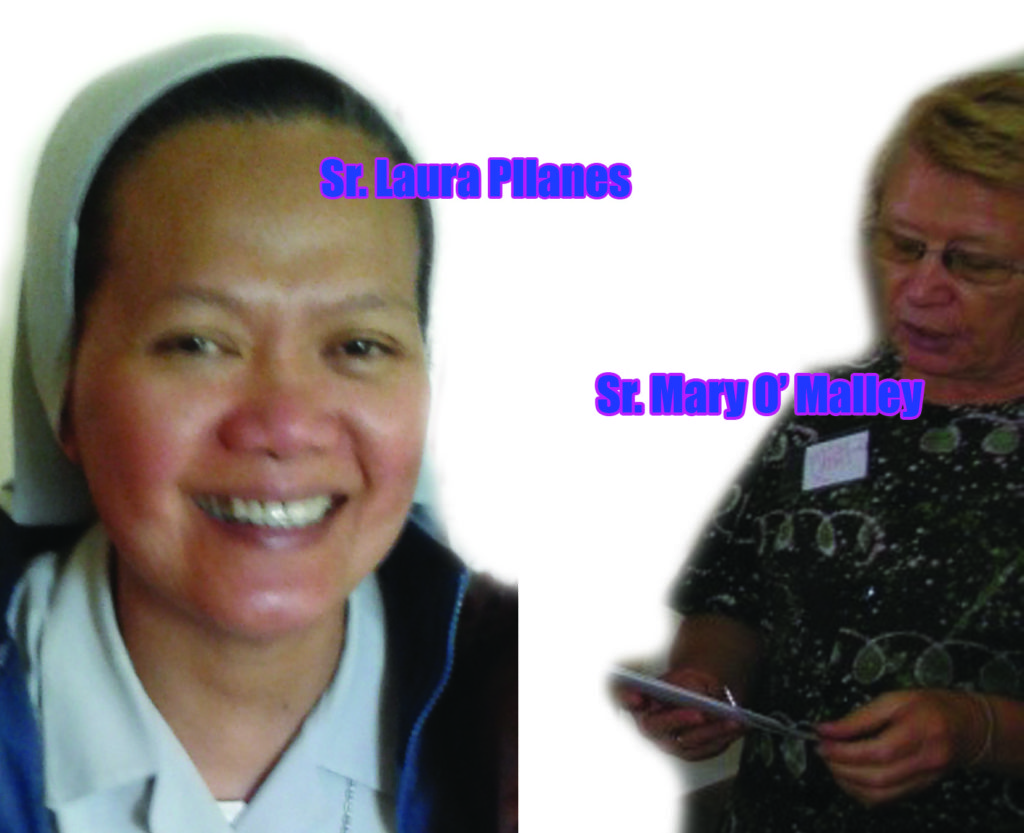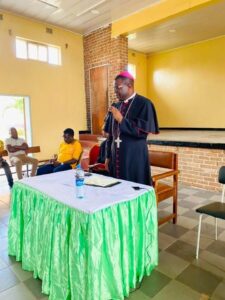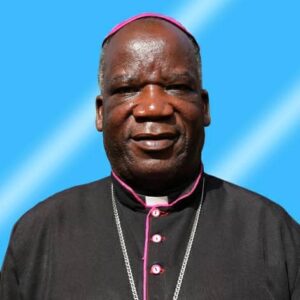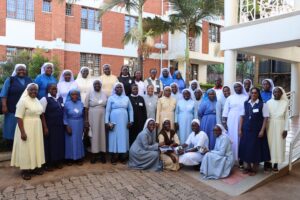KENYA: Nuns Challenged to Take Lead in the Fight Against Human Trafficking

Sr. Laura Pllanes a member of Canossian Daughters of Charity and Sr. Mary O’ Malley a member of the Medical Missionaries of Mary
Sr. Jecinter Antoinette Okoth, FSSA
At a virtual session organize by the Association of Sisterhoods in Kenya (AOSK) under Justice and Peace Commission (JPC), Religious women have been challenged to be at the forefront in fighting human trafficking which has become a menace in the society.
Speaking to over 250 nuns on Saturday, August 8, the Coordinator of Religious Against Human Trafficking (RAHT) in Kenya, a coalition of women and men Religious working together to end human trafficking, Sr. Laura Pllanes reminded the Religious women of their role in fighting human trafficking.
“As Religious, we have the responsibility to address this vice. Human trafficking is real and is happening in our world,” Sr. Pllanes a member of Daughters of Charity congregation, also known as Canossian Sisters, told the nuns and continued, “It doesn’t have to be part of your charism for you to be involved in the fight against human trafficking. You have to realize that if you ignore it, it is sin of omission.”
“Let us see the urgency of awareness campaigns right from our communities,” Sr. Pllanes explained stressing the importance of prevention using an axiom, “an ounce of prevention is better than a pound of cure.”
Talking about challenges facing the Catholic Church in combating human trafficking, the Filipino nun narrated that most Religious have not reached out to remote areas to enlighten the people, and that Catholic media houses are also not aggressive and informative enough about the matter.
Sr. Pllanes appealed to the Religious Congregations to “join missionary work so as to reach remote and vulnerable corners of the earth in enlightening the people about human trafficking.”
She also encouraged “Congregations and dioceses that are in media and communications apostolates to engage in investigating lesser known forms of human trafficking, documenting and broadcasting “real stories and reliable data” which are likely to be more effective for massive awareness.”
“Catholic media should foster partnership with journalists, not-for-profit organizations and Religious institutions so as to engage them in well-designed awareness campaigns on the connection between human trafficking and migrant smuggling,” she continued.
On her part, another facilitator who works with Counter Human Trafficking Trust-East Africa (CHTEA), Sr. Mary O’ Malley, reminded the Religious that “traffickers devise new tricks all the time,” hence the nuns should be alert and well informed to help the victims since “trafficked persons are among the most dehumanized and discarded of all people on planet earth.”
A member of the Medical Missionaries of Mary (MMM), Sr. Malley echoed the Sr. Pllanes words that human trafficking is a modern form of slavery not previously experienced in our world and that “nuns’ need a big dose of courage to move forward because we will be judged if we do nothing.”
She cited various root causes of human trafficking including “environment of corruption and greed, ineffective legal institutions, poverty and the demand for purchased sex,” adding that “With internet and modern communications on our doorstep the recruitment is swift and efficient.”


